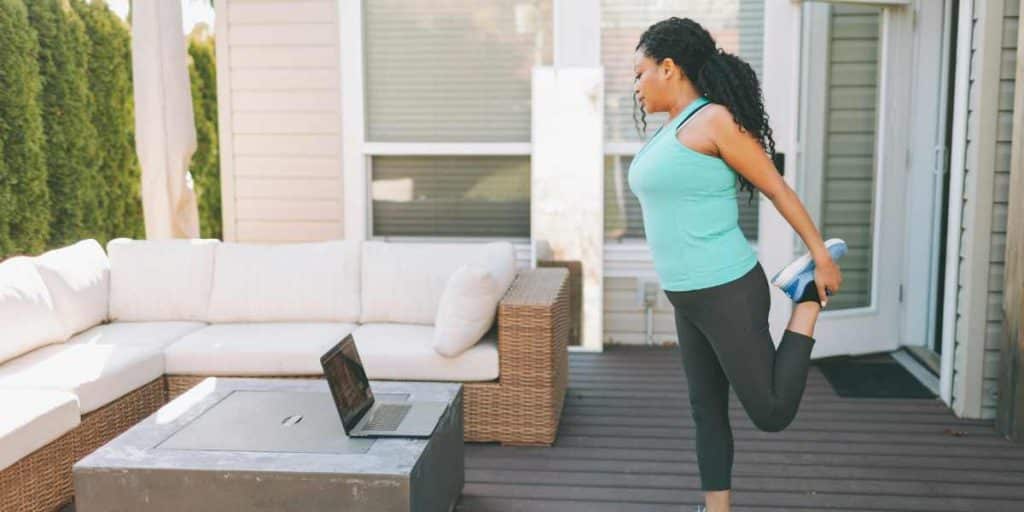In today’s high-paced, high-pressure world, stress often seems unavoidable. As we race from place to place and multi-task, endlessly plugged in and connected through mobile devices, phones, and laptops, it’s no wonder we feel overtaxed and anxious. How do you know if you are stressed?
7 Classic Signs Of Stress
- Headaches
- Neck pain, shoulder pain or back pain
- Digestive trouble
- Sleep disturbances
- Fatigue
- Frequent sickness
- Irritability
Eustress, or positive stress, can be beneficial but typically is appreciated as negative stress (distress). The American Academy of Family Physicians estimates that 60% of the conditions brought to physicians in the U.S. are stress-related. Many result directly from stress, while others are made worse or last longer due to stress.
The relationship between chronic stress and immune system health is tremendous.
We can not address the underlying causes and contributors if this is ignored.

Stress is defined in many different ways:
- An organism’s response to any ‘stressor’ such as an environmental condition or stimulus.
- The rate of wear and tear on the body results from anxiety, worry, or exhaustion from a challenging situation.
- A complex or intense experience which, if prolonged, could cause irritation and damage to a person’s nervous system.
- Nervous system activation can impact a person’s mental and physical well-being.
Stress can present itself in different forms:
- Physical: deconditioning, weakness, previous injuries/traumas, sports injuries, working situations, posture, repetitive motion, genetics, etc.
- Chemical and Environmental: diet/nutrition, pollution, oxygen saturation, pharmacological, etc.
- Emotional and Psychological: depression, anxiety, fear, anger, unhappiness, shock, financial burden, job/career, relationships/family, etc.
Although immune system health is not discussed often enough, it is our best defense against disease. Other public health measures have been shown to help at times, but ultimately, fighting illness comes from our immune systems and managing stress.
Life is out of our control and can often cause us unnecessary stress. Stress can be overwhelming and even unpredictable at times, but be sure to take the proper steps to manage your stress. Because stress effects everyone differently, there is no one answer to stress management. Use these tips to take control of your stress and practice healthy ways to manage stress.
All American Medical
7 Techniques That Help Manage Stress
Here are some mental techniques and lifestyle changes that can help you manage stress better:
1. Recognize that everything is temporary
What seems urgent today may not seem so important tomorrow. Prioritize the things that are truly important to you, and remember: your feelings of anxiety are temporary, too. A vital part of overcoming anxiety is realizing that the negative feelings you’re having will pass and you can overcome them.
2. Find ways to self-soothe
Practice deep breathing, positive self-talk, meditation, or relaxation exercises; experiment until you find what works for you, and you can calm yourself effectively. Discover ways to calm yourself in the moment, and look for ways to reduce your overall stress level. For some people, yoga might work to reduce stress, while journaling may have a calming effect for others.
3. Watch your diet and exercise
Caffeine, alcohol, cigarettes, and recreational drugs may seem like an appealing solution to stress, but in reality, they only temporarily mask the issues and can increase anxiety. Eating a healthy diet can give you the energy to face whatever is causing you stress, and exercising can release endorphins to help improve your mood.

4. Get enough sleep
Many of us are sleep deprived, and sleep deficit is difficult to counteract. However, recent studies indicate that losing sleep can increase your feelings of stress, anger, and sadness, so it’s essential to make sure you’re getting the proper amount of sleep.
4. Practice gratitude
Dwelling on your problems is self-defeating, and a negative attitude will surely bring you down. Accept that some things are beyond your control, and notice everything that goes right for you each day. Keeping a gratitude journal is one good way to change your attitude and reduce your stress.
5. Build a support system
One of the best ways to handle stress is to talk to others— preferably face-to-face. Your network of friends and family can help you gain a fresh perspective, and connecting with other people will refresh and renew your spirit.
6. Simplify your life
Identify sources of stress in your life and see which ones you can eliminate. Pare down your to-do list, and find ways to delegate. Limit your screen time, and make a conscious effort to spend time outside, in nature.
5 Practical Tips To Reduce Your Stress Right Now
1. Avoid Caffeine, Alcohol and Nicotine
It’s easy to fall into a habit of eating fatty, salty snacks, but these ingredients may make your body susceptible to stress. When we do not give our bodies the proper nutrients it need, we find ourselves feeling fatigued and achy. You especially need to concentrate on what you eat during stress periods.
Avoid or reduce consumption of nicotine and drinks containing caffeine and alcohol. These three items are all stimulants and will increase your stress level rather than reduce it. Instead, drink water, herbal teas, or sugar-free juices to keep your body hydrated. This also goes for sugary foods. Stick to fruits, vegetables, and lean protein.
2. Relax and Sleep
Lack of sleep is a significant cause of stress. When you do not get enough rest and sleep, your body does not have enough time to recover and return to a balanced state. Taking time out of your day to relax will allow your thoughts to slow down and put your mind in perspective. Focus on your breath and the environment around you. Tune out additional distractions and let your body balance itself out.
You should also practice these techniques before going to bed at night. Don’t use technology right before going to sleep or any other device that will stimulate your brain. Create a peaceful, dimly lit environment that will allow your body to naturally fall into a state of rest.

3. Do Some Exercise
Exercising releases endorphins in your brain, which stimulates happiness; in turn, exercise can also reduce depression and lower cortisol levels in your body. When your workout is done, your body can restore itself and return to a calmer, more relaxed state of mind.
4. Talk to Someone
Sometimes the simple act of talking to someone can lift a burden from our shoulders. This also opens up opportunities to gain opinions and see your stress with a new perspective. Talking with others also allows you to release emotion. Our brain and emotions are interconnected; therefore, when we express an emotion, we often believe it.
Has anyone ever told you to smile while you were feeling down? This is because our facial expressions are interconnected with our brains as well! When you smile, you can convince your brain that you are happy, and this in turn, will leave you feeling better.
5. Spend Time With People You Love and Human Touch
Spending time with people you love naturally puts your mind at ease. Use this time to relax, put away your problems, and enjoy the present moment. Additionally, never underestimate the power of a human touch. This can be a hug or kiss from a loved one or even a deep massage from a chiropractor! Studies show that massage therapy and adjustments help relieve stress and reduce anxiety and depression.
” People need 4 hugs a day to help prevent depression, 8 for psychological stability, and 12 for growth.”
Virginia Satir
Don’t let your stress control you. Use the tips above to manage your stress levels and keep your body healthy.
The team at All American Medical is dedicated to helping our patients live a whole, healthy, pain-free life.
We have two convenient locations in Covington and Hammond, Louisiana, dedicated to helping you create a healthier workplace environment, leading to a more efficient and productive employee. Contact us today to start designing your personalized corporate wellness program!
